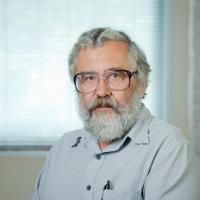How the effects of aging and stresses of life are integrated in mortality rates: insights for genetic studies of human health and longevity.
Date
2016-02
Journal Title
Journal ISSN
Volume Title
Repository Usage Stats
views
downloads
Citation Stats
Attention Stats
Abstract
Increasing proportions of elderly individuals in developed countries combined with substantial increases in related medical expenditures make the improvement of the health of the elderly a high priority today. If the process of aging by individuals is a major cause of age related health declines then postponing aging could be an efficient strategy for improving the health of the elderly. Implementing this strategy requires a better understanding of genetic and non-genetic connections among aging, health, and longevity. We review progress and problems in research areas whose development may contribute to analyses of such connections. These include genetic studies of human aging and longevity, the heterogeneity of populations with respect to their susceptibility to disease and death, forces that shape age patterns of human mortality, secular trends in mortality decline, and integrative mortality modeling using longitudinal data. The dynamic involvement of genetic factors in (i) morbidity/mortality risks, (ii) responses to stresses of life, (iii) multi-morbidities of many elderly individuals, (iv) trade-offs for diseases, (v) genetic heterogeneity, and (vi) other relevant aging-related health declines, underscores the need for a comprehensive, integrated approach to analyze the genetic connections for all of the above aspects of aging-related changes. The dynamic relationships among aging, health, and longevity traits would be better understood if one linked several research fields within one conceptual framework that allowed for efficient analyses of available longitudinal data using the wealth of available knowledge about aging, health, and longevity already accumulated in the research field.
Type
Department
Description
Provenance
Subjects
Citation
Permalink
Published Version (Please cite this version)
Publication Info
Yashin, Anatoliy I, Konstantin G Arbeev, Liubov S Arbeeva, Deqing Wu, Igor Akushevich, Mikhail Kovtun, Arseniy Yashkin, Alexander Kulminski, et al. (2016). How the effects of aging and stresses of life are integrated in mortality rates: insights for genetic studies of human health and longevity. Biogerontology, 17(1). pp. 89–107. 10.1007/s10522-015-9594-8 Retrieved from https://hdl.handle.net/10161/14803.
This is constructed from limited available data and may be imprecise. To cite this article, please review & use the official citation provided by the journal.
Collections
Scholars@Duke

Anatoli I. Yashin

Konstantin Arbeev
Konstantin G. Arbeev received the M.S. degree in Applied Mathematics from Moscow State University (branch in Ulyanovsk, Russia) in 1995 and the Ph.D. degree in Mathematics and Physics (specialization in Theoretical Foundations of Mathematical Modeling, Numerical Methods and Programming) from Ulyanovsk State University (Russia) in 1999. He was a post-doctoral fellow in Max Planck Institute for Demographic Research in Rostock (Germany) before moving to Duke University in 2004 to work as a Research Scientist and a Senior Research Scientist in the Department of Sociology and the Social Science Research Institute (SSRI). He is currently an Associate Research Professor in SSRI. Dr. Arbeev's major research interests are related to three interconnected fields of biodemography, biostatistics and genetic epidemiology as pertains to research on aging. The focus of his research is on discovering genetic and non-genetic factors that can affect the process of aging and determine longevity and healthy lifespan. He is interested in both methodological advances in this research area as well as their practical applications to analyses of large-scale longitudinal studies with phenotypic, genetic and, recently, genomic information. Dr. Arbeev authored and co-authored more than 150 peer-reviewed publications in these areas.

Dequing Wu

Igor Akushevich

Mikhail Kovtun

Arseniy Yashkin
I am primarily a health outcomes researcher who specializes in cancers and chronic age-related diseases, especially Alzheimer’s disease and type II diabetes mellitus. However, I also write in epidemiology, demography, health economics and genetics. I am a specialist in the analysis of administrative big health data. My main contributions to scholarship can be summarized across three focus areas: health outcomes research, epidemiology and methodology, and health economics. Some of my most important findings are described below.

Alexander Kulminski

Irina Kulminskaya

Svetlana Ukraintseva
Dr. Ukraintseva studies causes of human aging and related decline in resilience, to identify genetic and other factors responsible for the increase in mortality risk with age eventually limiting longevity. She explores complex relationships, including trade-offs, between physiological aging-changes and risks of major diseases (with emphasis on Alzheimer’s and cancer), as well as survival, to find new genetic and other targets for anti-aging interventions and disease prevention. She also investigates possibilities of repurposing of existing vaccines and treatments for AD prevention and interventions into the aging. For this, Dr. Ukraintseva and her team use data from several large human studies containing rich genetic and phenotypic information (including longitudinal measurements) on thousands of individuals. Dr. Ukraintseva is a PI and Key Investigator on several NIH funded grants, and has more than 130 peer-reviewed publications, including in major journals such as Nature Reviews, Stroke, European Journal of Human Genetics, and some other.
Unless otherwise indicated, scholarly articles published by Duke faculty members are made available here with a CC-BY-NC (Creative Commons Attribution Non-Commercial) license, as enabled by the Duke Open Access Policy. If you wish to use the materials in ways not already permitted under CC-BY-NC, please consult the copyright owner. Other materials are made available here through the author’s grant of a non-exclusive license to make their work openly accessible.
